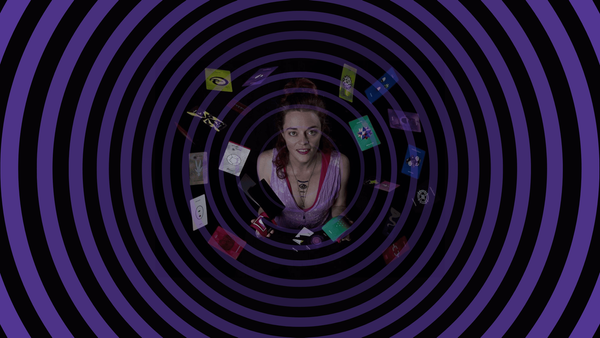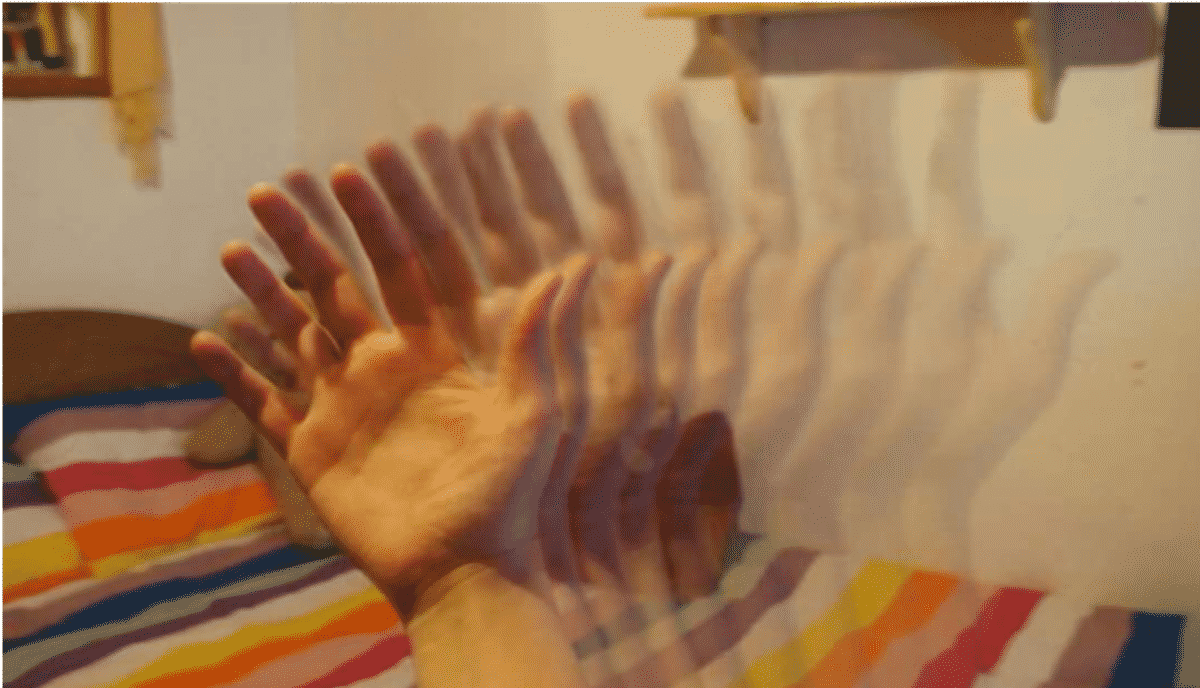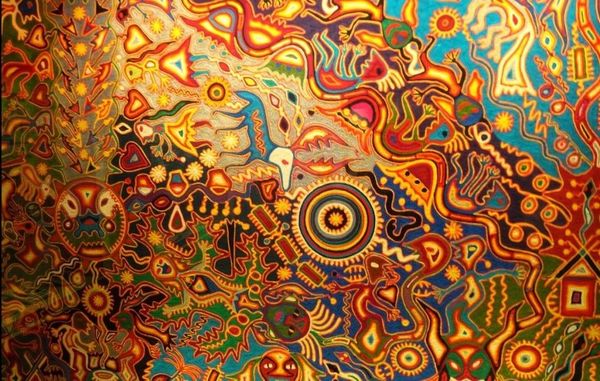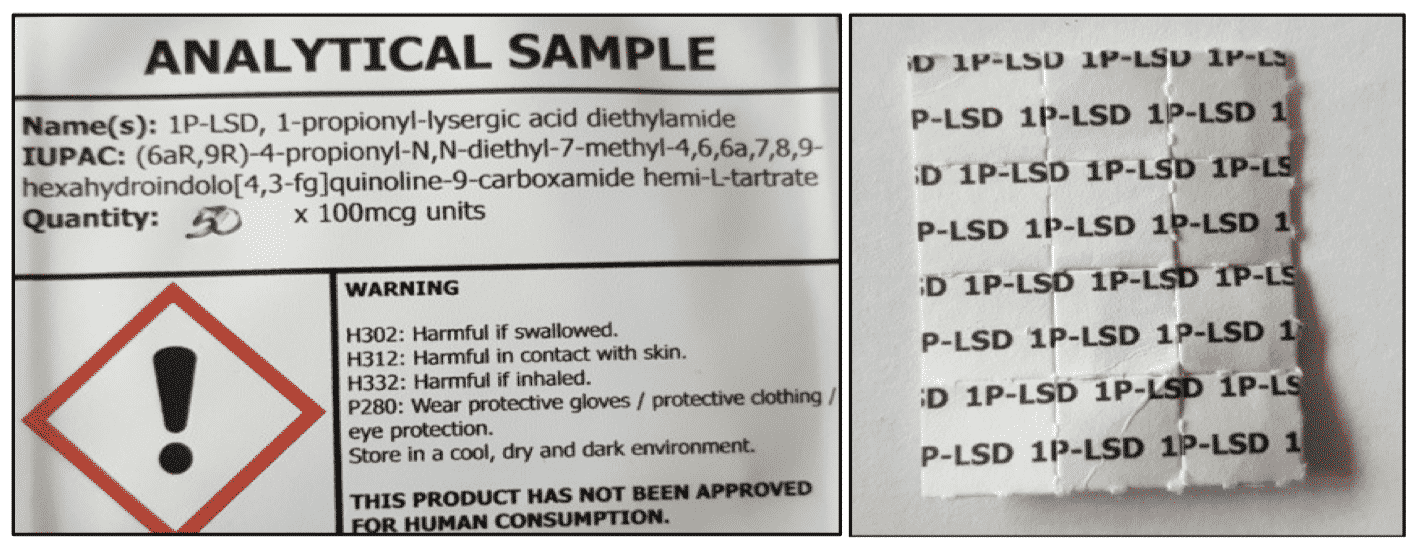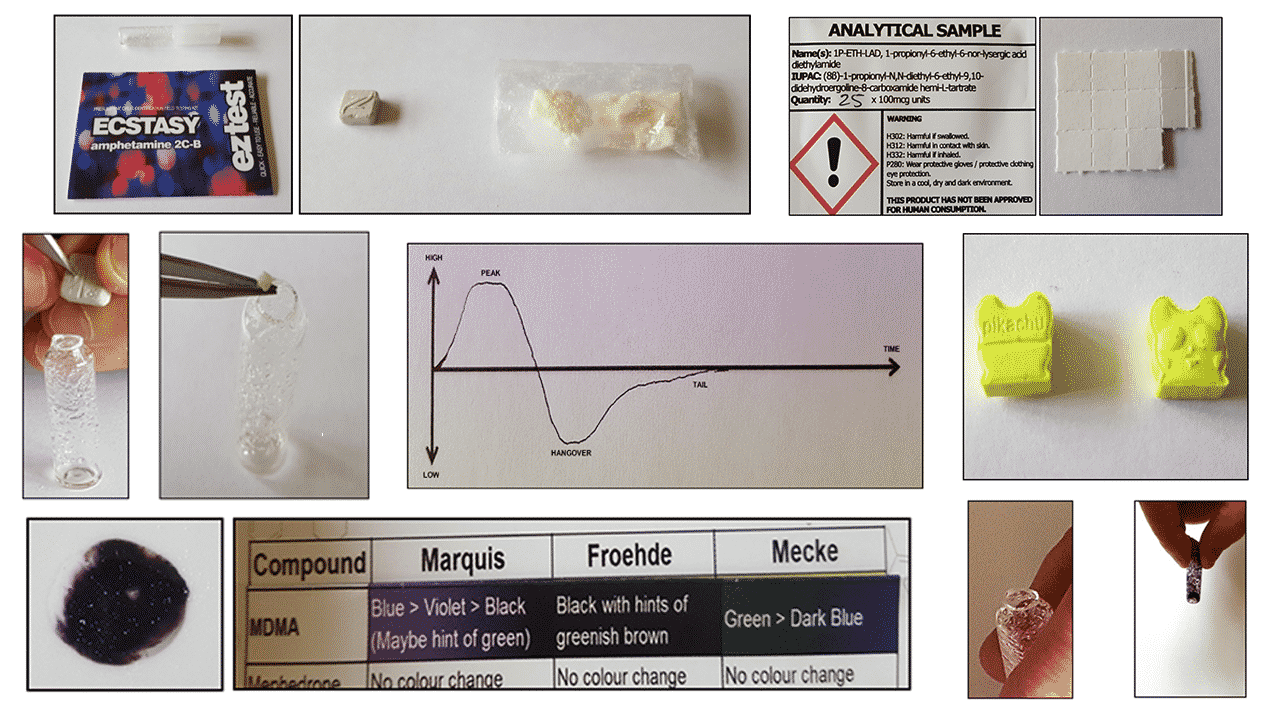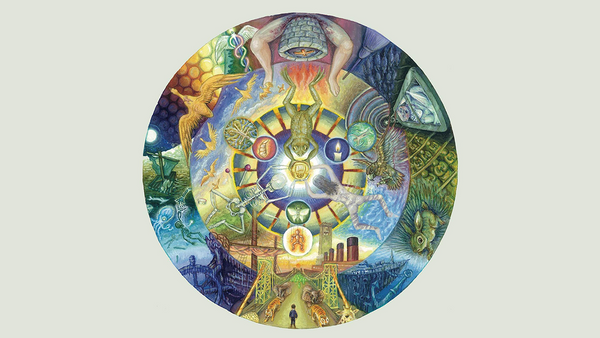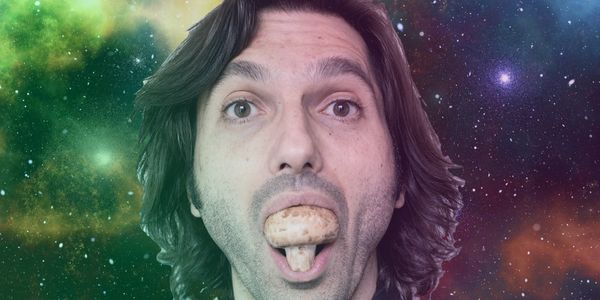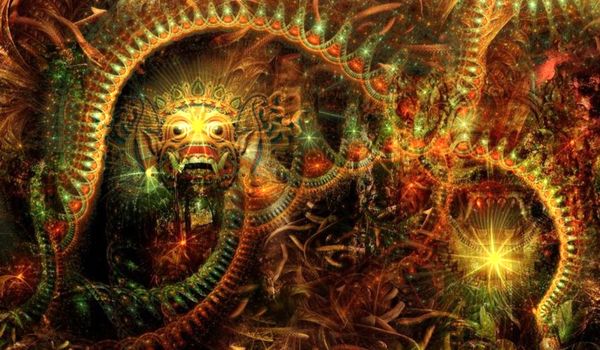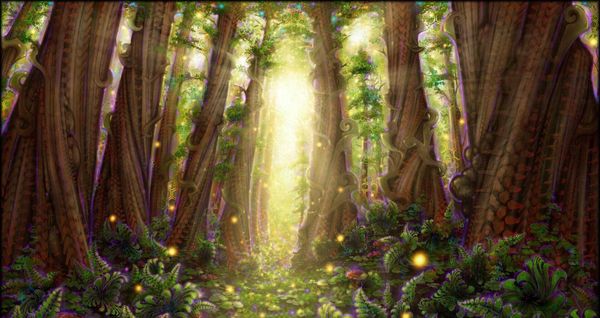Open Your Mind • • 13 min read
Would the iPhone Exist If Steve Jobs Did Not Take LSD?
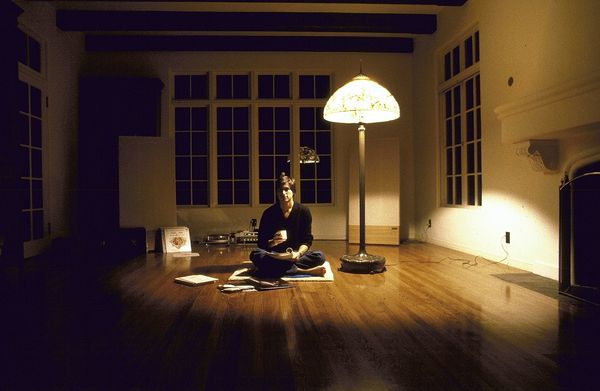
Nearly two months ago I took my first hit of acid.
The most profound experience I remember from that day was how blown away I was with the apps on my iPhone. How different, how beautiful and yet oxymoronically, how similar they were to each other compared to my pre-acid perception.
I also remember having this child-like sense of awe with the phone itself; its internal and external design features, a lucid dream behind a glass screen. It was the mirror-image sensation of the awe I had when I laid eyes on the first iPod Touch.
Upon unboxing the iPod Touch, I had nothing else in the world to compare it to. Yes, there was the Nintendo from my early childhood, the PlayStation, the computer, the cell phone, the internet, but as sufficiently advanced as those technologies were, to me, their magic was meager to the Touch.
Back to the acid:
The LSD did not take me on a “trip,” but to take my metaphor further, it let me unbox the world for the first time. Acid didn’t allow me to “think outside the box,” it allowed me to “live outside the box”; to hold the world and feel the world hold me.
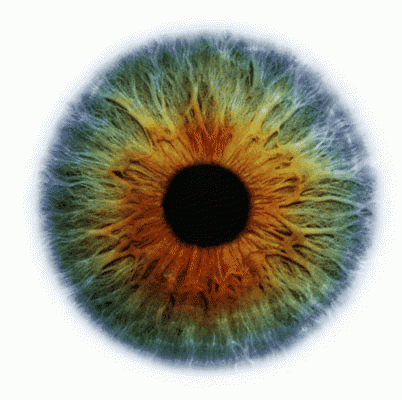
It doesn’t surprise me that Jobs put “i” in front of most of Apple’s product names. After all, “i” is an effective way to symbolize both perception through “eye” and individuality through “I.” It also doesn’t surprise me that the first iPod Touch was essentially the world’s first “touch” technology. A sensory amalgamation of sight and kinesthesia; shifting realms of reality, like those that envelop the first time acid takers ego, their “I”.
Interestingly, when being asked how Steve Jobs reacted to LSD during a government security clearance, he answered that he had “no words” for it. He did, however, share that:
“It was a positive life changing experience for me and I am glad I went through that experience.”
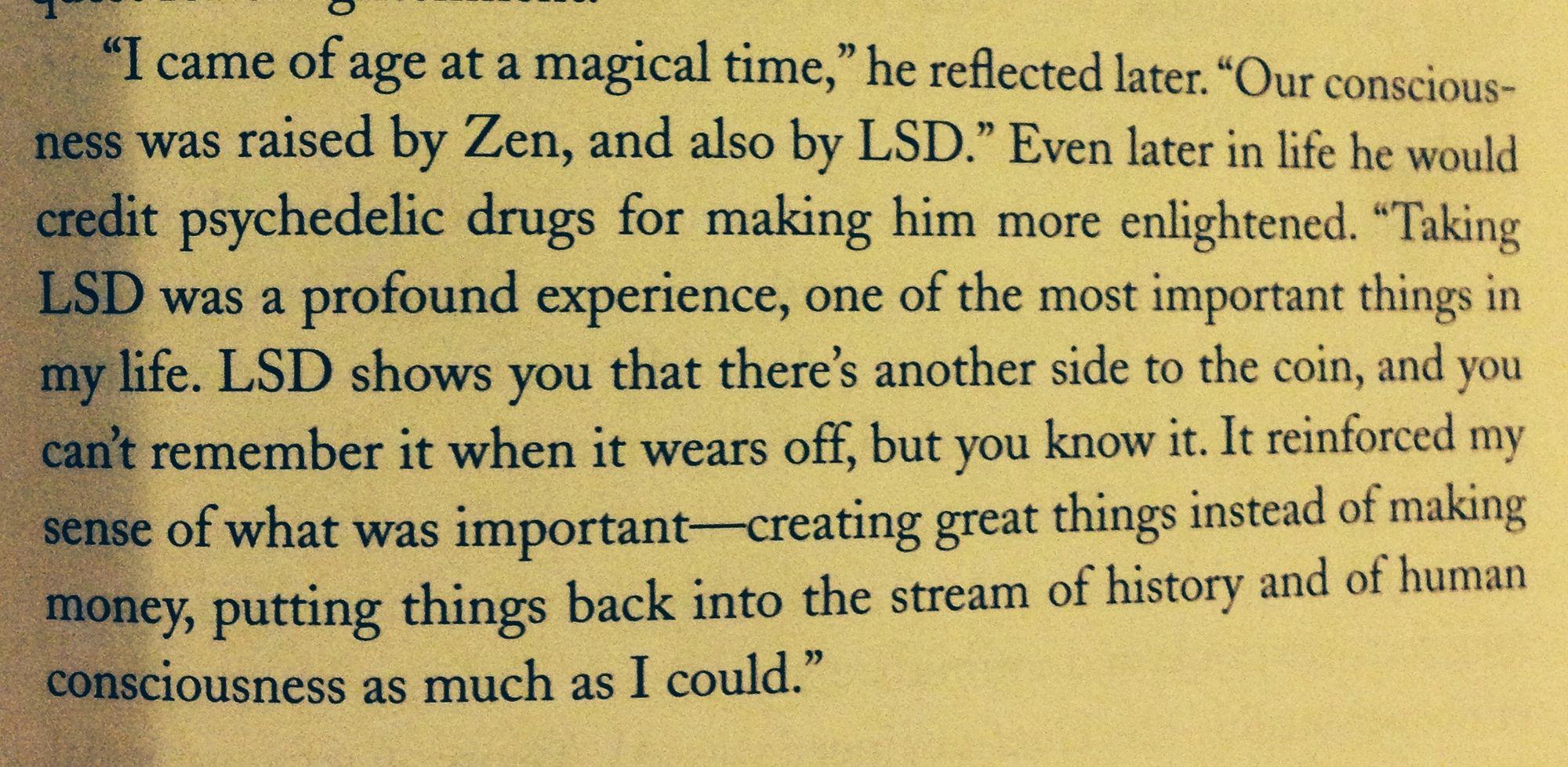
The full quote from Walter Isaacson’s book, Steve Jobs.
If someone had asked me how I reacted to the iPod touch, I would have answered similarly. Words like “magical,” “erotic,” “profound,” and “beautiful” all fall short. It’s not that language itself is the limiting technology, but our capacity to synchronize it effectively with our emotions.
Where am I going with this?
Well, I came to the conclusion, a self-realization I should say, the Steve Jobs would not have invented the iPhone had he not taken LSD.
I arrived at this realization by examining my feelings about the iPod Touch when I had first “taken” it, as one would an exogenous substance. The feelings I felt about the world, people, myself, beauty, and everything else, after taking LSD, showed me the former was an expression, a containment, a symbol, a vessel, a carbon copy, of the latter.
My belief is that Steve Jobs, at some point in his life, decided he would give as many people across the world access to a connection, a love, an experience, so deep, as deep as he had with LSD, but through his work.
Whereas a musician might write and sing for the same purpose, to create, express, connect, and evolve further with his audience, the iPhone was made as a synonym, of sorts, to the experience of psychedelia.
Nine hours after my first dose of acid, I fell asleep at 6AM. Later that day I was interested to see if anyone else had made the same connection between LSD and Steve Jobs’s creation as I had. There were two interesting articles. The first was from Times, and it was titled ‘Steve Jobs Had LSD. We Have the iPhone‘:
“The paradoxes of love have perhaps never been clearer than in our relationships with Apple products — the warm, fleshy desire we feel for such cold, hard, glassy objects. But Jobs knew how to inspire material lust. He knew that consumers want something that not only sparkles and awes, but also feels accessible, easy to use, an object with which we want to merge and to feel one and the same.
Not coincidentally, that’s how people describe the experience of taking psychedelic drugs. It feels profoundly artificial yet deeply real, both high-tech and earthy-crunchy, human and mystically divine — in a word, transcendent. Jobs had this experience. He said that taking LSD was one of the two or three most important things he’d ever done. “He said there were things about him that people who had not tried psychedelics — even people who knew him well, including his wife — could never understand.
As attested by the nearly spiritual devotion so many consumers have to Jobs’ creations, the former Apple chief (and indeed many other top technology pioneers) appeared to have found enduring inspiration in LSD. Research shows that the psychedelic experience is, in fact, long lasting: a new study published last week found that people who took magic mushrooms (psilocybin) had long-term personality changes, becoming more open, more curious, more intellectually engaged and more creative. These personality shifts persisted more than a year after taking the drugs.
— John Markoff reported for the Times.
The second was from Metro News and it was titled ‘The Apple that Steve Jobs built based on sex, drugs and rock ‘n’ roll‘. Mr. Dormehl told Metro:
“You have Jim Warren, the creator of the West Coast Computer Faire. In the ‘60s, he was a full-blown hippie. He joined anti-war protests, he joined a commune — the whole shebang. He was also hosting naked house parties and dropping acid.’
Jobs certainly grew up in the thick of the 60s revolution. Allen Ginsberg wrote his seminal poem Howl, one of the most popular of the counterculture generation, only a few months after Steve Jobs was born in 1955, in a coffee house just one hour away from where the future Apple CEO enjoyed his childhood in California.
Mr Dormehl said: ‘Certainly, if we didn’t have this revolution which went on in the 1960s and 1970s, which was largely fuelled by drug use and LSD exploration, giving people new ways of looking at the world, personal computer technology wouldn’t have developed along the same lines that it did.
‘Before Apple, computers were seen as these sinister government mainframes that regular people wouldn’t have access to.
‘After Apple, suddenly personal computers are these tools of freedom fighting and tools of personal creativity.’
In their 1991 profile of Jobs, the FBI noted: ‘Mr Jobs may have experimented with illegal drugs, having come from that generation.’”
Is All Acid Corrosive?
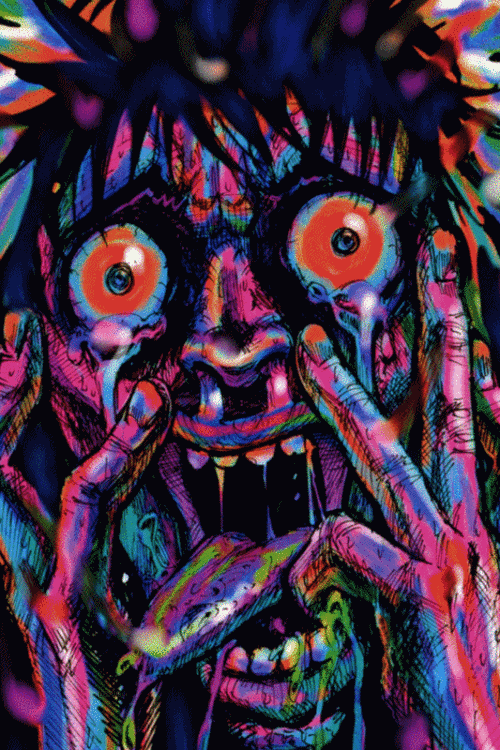
Before taking LSD I thought the experience would be mostly visual, and if anything, very confusing. When I thought of an acid experience, I thought of people sitting in the corners of rooms for days, thinking they’re oranges and scratching their skin off. I thought of things like MKUltra and A Clockwork Orange. I thought of things like hallucinogen persisting perception disorder and being arrested.
Two or three weeks after taking acid for the first time, I compared these notions to what I actually experienced. There was a glaring disconnect between what I expected psychedelics to be and what they actually were. After doing some digging on LSD research, I stumbled across an article titled ‘Dr. Robin Carhart-Harris is the first scientist in over 40 years to test LSD on humans — and you’re next‘.
Here’s an extract:
Professor David Nutt, the director of the Neuropsychopharmacology Unit where Carhart-Harris is doing the research […] has written extensively about the wrong-headedness of the current drug laws. “It is absurd to treat LSD and psilocybin as more dangerous than heroin,” he tells me. In a 2010 study published in The Lancet, following on from the work that led to his controversial sacking from the chair of the Government’s Advisory Council on the Misuse of Drugs the year before, Professor Nutt ranked the 20 most commonly used drugs according to the evidence for the overall amount of harm they do to the users and to society. Psilocybin came last, with an overall harm score of six, and LSD came 18th with a score of seven, compared with alcohol’s 72 and heroin’s 55.
When I ask why LSD was prohibited, he has a surprisingly simple three-word answer: “the Vietnam war”. Essentially, when its use spread to the general population in the mid 1960s, “Young Americans realised they didn’t want to fight any more. That brought a huge tension into society. So they had to create reasons for banning the drug. Everyone knew the arguments were totally specious. But no one stood up.”
Carhart-Harris has a further explanation: “Psychedelics are scary because they reveal the mind, and people are scared of their own minds. They’re scared of the human condition, really.”
LSD is banned from medical research in the U.S. due to its classification as a Schedule I substance under the Controlled Substances Act of 1970. A Schedule I substance is defined as having no safe dose with any medical supervision (such as one that would be conducted under a strict research experiment), and as having no accepted medical use.
Just like marijuana, LSD is non-addictive, but both substances continue to be categorized as Schedule I substances. Furthermore, today in 2015, it is still not possible to research LSD or mushrooms in the U.S., whereas addictive substances such as methamphetamine can not only be researched, but also prescribed for treatment of ADHD and weight loss under the name of Desoxyn.
I don’t consider myself knowledgeable enough to provide an argument for the legalization of psychedelics, and I probably never will if LSD and mushrooms remain unavailable for medical research. This has to change.
Compared to cocaine and heroin, I know absolutely nothing about the short-term effects, long-term effects, benefits, or downsides of psychedelics; and that’s all because it’s legally not possible for researchers to administer experimental doses (of substances that entrepreneurs, musicians, artists, scientists, “trippers,” and everyday people have been taking for hundreds of centuries combined) to willing volunteers.
What little research there is seems at odds with the mainstream taboos:
“In Johns Hopkins’ ongoing program of psilocybin research, scientists have treated over 150 volunteers in 350 drug-trial sessions. Although many participants experienced at least some type of anxiety reaction while on the drug, none of them reported lasting harm, and 70% rated the experience as one of the top five most meaningful events of their lives, comparable to the birth of a first child or the loss of a parent.”
There is plenty of anecdotal evidence all over the internet, by people of all walks of life:
“Based on my own LSD experience I would concur, second only to the birth of my son (which wouldn’t have happened if not for my earlier LSD experience).”
Then there’s also the experiences of some of the best musicians of our time:
“The Beatles, Santana, Jimi Hendrix, Grateful Dead, Eminem, Green Day, Jefferson Airplane, Pink Floyd, the Moody Blues, Fatboy Slim, Suede, the Doors, Cream, and Janis Joplin are just a few of the artists known to use acid as part of their creative process.” — Hijacked
Not to mention that the most interesting experiences shared might not even come from musicians and entrepreneurs, but from people online having “documented” their thought process while taking acid for the first time:
“Why am I here? I dont belong. Work my life away for essential worthless? and IOU from a personal bank? in comparison to spending time with my faimly and friends creating memories instead. Why can’t I find my meaning? Is it staring me in the face? Is it happiness? how do I achieve this? 2.) Society, I don’t understand, I don’t belong to this. The majority of people I see only care for their personal comfort. Not the senseless war and killing of human beings so long as it doesn’t interfere with their personal comfort. There’s always something to fight and die for? Why? Why can’t we as a society catch on to the meaniless cycles we keep repeating. Over and Over again. Work, work, work, war, war, war. Followed by distractions to keep unfocused.”
So why the disconnect? Conspiracy? Illuminati? Aliens? I think it was much simpler.
Carhart-Harris’s believes LSD was originally banned because:
“Psychedelics are scary because they reveal the mind, and people are scared of their own minds. They’re scared of the human condition, really.”
Before taking LSD for the first time I was afraid, putting myself through a state of consciousness I had never experienced.
What if I kill myself? What if I say something really absurd because of the acid and people think I’m crazy? What if I say something really absurd because the acid lets me, and I convince people that I actually believe it, because I actually do, and people think I’m crazy? What if I run outside or yell or get arrested? What if I get in a car and start driving?
It is clear to me now, that everything I was afraid about doing on psychedelics, was not a fear of what I would do differently, but a fear of what I might truly want to do in normal life. For example, in the past I’ve suffered with suicidal thoughts, and I was worried I would hurt myself because that’s what I may have wanted to do all along. Needless to say, even this wasn’t worth fretting over.
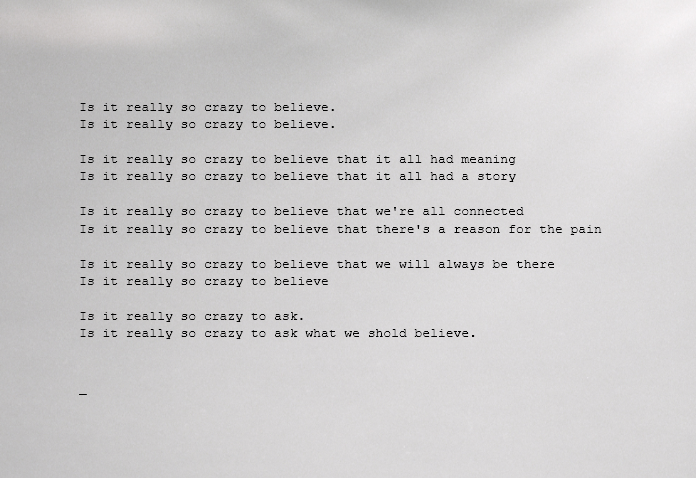
A poem I wrote in my room while on LSD
As a kid I wasn’t the best at not letting my curiosity or patience get the best of me. You’ve probably done the same thing yourself before: need to be at least 13 years or older to join Facebook? Click, 1990, next. Need to read a 100-paged terms of agreement that says your location, habits, and personal information can be stored and shared with just about anyone if you sign up? Click agree, next.
If acid had a terms of agreement, I’d imagine they would look something like this:
WAIVER OF LIABILITY FOR THE ACID OR MUSHROOMS YOU ARE ABOUT TO EXPERIENCE:
Possibilities are as follows: profound life experiences, paranoia, life-long perception altering realizations, unrealized life passions and goals, acute anxiety, depression, flashbacks, suicide, distortion of time and space, movements and patterns of people and surfaces, belief that you’re an alien, belief that you’re an avatar, kissing floors, painting, drawing, watching videos and feeling like you’re in them, long-lasting psychoses such as schizophrenia or severe depression, fear of insanity, death, terrifying thoughts and feelings, hearing colors and seeing sounds, rapid emotions, new emotions, high blood pressure, low blood pressure, sleeplessness, dry mouth, tremors, nausea, weakness of the limbs, inability to speak, weakness of the lips, paranoia of choking, sweating, high body temperatures, hallucinations, delusions, desire to be naked, desire to be clothed in multiple layers, desire to drive, desire to ride a bicycle, desire to have sex, desire to learn something new, desire to engage in marijuana smoking, feeling as amazed by the world as the psychedelics wear of as when they first kicked in, hoping that psychedelic patterns and thoughts remain throughout your life at least at one percent intensity, and many other possibilities. Not to mention that any psychedelic experience is often 100% unpredictable, and no matter what you think about “tripping” before putting such a substance in your body will prepare you for anything that you’re going to discover once it kicks in.
I know I don’t regret reading those long terms of agreement pages or waiting until I turned 13 to make an email account, play RuneScape, or play teen-rated video games. I also know I don’t regret doing barely any research into what acid was before placing a little white piece of paper on my tongue, holding it there, and waiting to experience something I had no idea of what to expect going in, simply because it was available, non-addicting, and promising.
If someone made me sign a waiver of liability like the one written above before taking acid, I would have done so without reading it, as I did with the CoSM entry ticket papers and various other important papers I should have read in my life before signing.
I don’t know how Steve Jobs would have reacted to a similar waiver had it been placed in front of him before embarking on any of the things he did in his life, but I like to imagine he would have shared my frivolity.
“Here’s to the crazy ones, the misfits, the rebels, the troublemakers, the round pegs in the square holes… the ones who see things differently — they’re not fond of rules… You can quote them, disagree with them, glorify or vilify them, but the only thing you can’t do is ignore them because they change things… they push the human race forward, and while some may see them as the crazy ones, we see genius, because the ones who are crazy enough to think that they can change the world, are the ones who do.”
– Steve Jobs
ACiD
Steve Jobs said “You can’t connect the dots looking forward, you can only connect them looking backward.” When I connect the dots I see a clear line between the iPhone and LSD.
“You’re born alone, you’re going to die alone,” he said. “And does anything else really matter? I mean what is it exactly is it that you have to lose Steve? You know? There’s nothing.”
However Mr Jobs’s views softened after he became ill, Mr Isaacson told a CBS 60 Minutes programme marking the release of the book ‘Steve Jobs’ on Monday.
“Maybe it’s ‘cos I want to believe in an afterlife,” he recalled Mr Jobs saying. “That when you die, it doesn’t just all disappear. The wisdom you’ve accumulated. Somehow it lives on.
– (Steve Jobs refused on/off switch for iPhone because he hoped there was an afterlife)The Telegraph
Whether LSD really was responsible for the development of the iPhone, to me, is a moot point. Of course, genetics, environment and randomness played a huge part. The point of this post is the question, not the answer: Would the iPhone Exist If Steve Jobs Did Not Take LSD? If this question can be legitimately asked, analyzed, and considered plausible then surely that says as much about the potential nature of LSD as any small-scale study could.
Can LSD enrich the world? I don’t know. But I’m not gonna stop asking until I do.

1. Steve Jobs by Walter Isaacson
Certain quotes and ideas for this post were taken from this book.
A Final Note on Safety
As we repeatedly stress on HighExistence, psychedelics must be approached with reverence and caution. We believe that in a loving context, psychedelics are powerful medicines with tremendous potential, but there are a number of physical and psychological safety concerns that one should consider before journeying with psychedelics. Please, please do plenty of research, and do not take psychedelics if you have reason to believe that they will not jibe with your personality or particular mental baggage. The Essential Psychedelic Guide on Erowid is an exceptional free resource, and we recommend reading it, especially the section on ‘Psychedelic Safety,’ before ever dabbling in these substances. It’s also imperative that you buy a test kit if you aren’t absolutely certain that the substances you’ve procured are what you believe them to be. Take care, and happy tripping. : )

